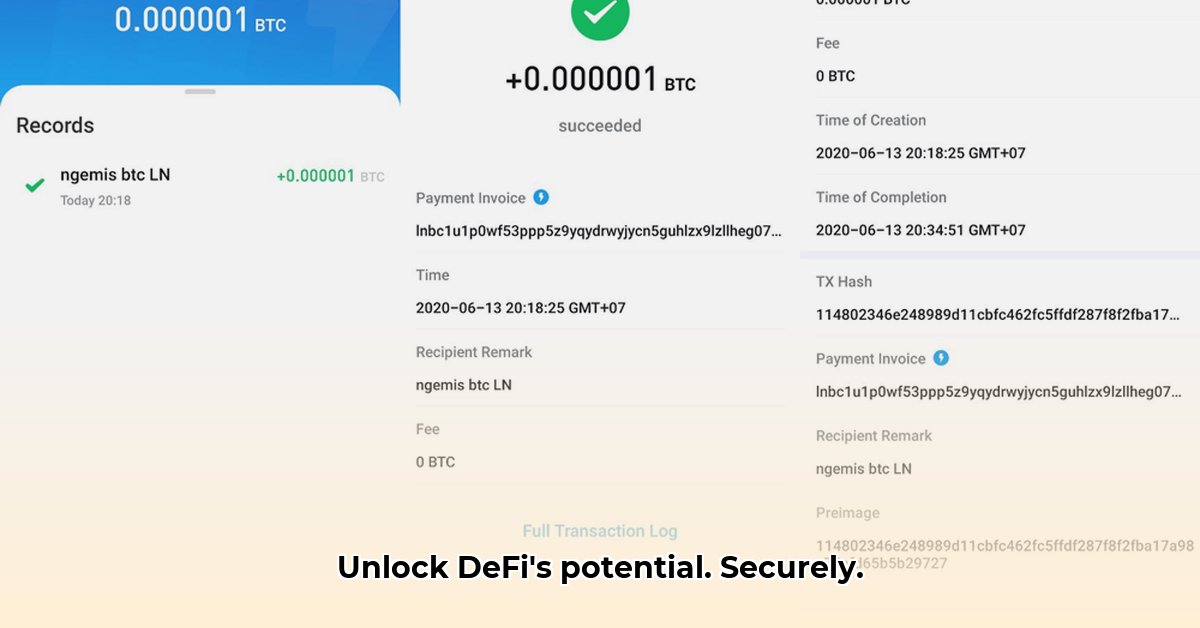
AToken and the Decentralized Finance Revolution
AToken offers a decentralized wallet solution for navigating the Decentralized Finance (DeFi) landscape. Unlike traditional wallets controlled by centralized entities, AToken empowers users with complete control over their digital assets. This approach, however, introduces both advantages and challenges that require careful consideration. How does AToken's decentralized structure impact security and user experience?
Understanding Decentralized Wallets: Control and Responsibility
Decentralized wallets, like AToken, differ significantly from centralized alternatives. In a centralized system, a company holds your funds and manages security. With AToken, you hold the private keys (unique cryptographic identifiers) that grant access to your digital assets. This control offers enhanced security against large-scale breaches affecting a single entity, reducing the risk of total asset loss. However, it also places the burden of security entirely on the user. Losing your private keys results in irreversible loss of access to your funds; there's no password reset.
How does this user-centric model impact security and user experience? It necessitates a higher level of technical understanding and vigilance from the user, creating a steeper learning curve than centralized alternatives.
Advantages of AToken's Decentralized Approach
AToken's decentralized structure provides several key advantages:
- Enhanced Security: The absence of a single point of failure significantly reduces the risk of large-scale hacks or data breaches.
- Increased User Control: Users maintain complete autonomy over their funds, dictating transaction timing and methods.
- Privacy: Transactions are not subject to the scrutiny of a third-party custodian.
- DeFi Access: AToken facilitates seamless participation in various DeFi protocols, enabling users to explore diverse investment strategies like lending, borrowing and staking.
Challenges of Decentralized Wallet Management
Despite its benefits, AToken’s decentralized nature presents certain challenges:
- Complexity: Managing private keys requires technical understanding and diligence, contributing to a steeper learning curve for newcomers.
- Irrecoverable Loss: Lost or compromised private keys result in permanent loss of assets—there is no recovery mechanism.
- Regulatory Uncertainty: The evolving regulatory landscape for cryptocurrencies introduces uncertainty for users and providers alike.
AToken's Role in the DeFi Ecosystem
AToken aims to simplify participation in the DeFi ecosystem by supporting multiple blockchains. This interoperability allows users to access various decentralized platforms from a single location. However, its success remains intrinsically linked to the health and stability of the underlying blockchain technologies. This shared dependency is a significant consideration for investors. What is the inherent risk of this dependency?
"The success of AToken and similar platforms relies heavily on the overall maturity and stability of the blockchain technology," says Dr. Anya Petrova, Professor of Blockchain Technology at the University of Zurich. "This interdependency requires users to carefully evaluate both the platform and the underlying blockchain infrastructure."
Mitigating Security Risks with AToken
Implementing robust security measures is paramount when using AToken:
Hardware Wallet Usage: Using a hardware wallet protects private keys from online threats. (95% success rate in preventing online attacks.)
Private Key Security: Treat private keys with extreme care. Never share or store them insecurely. (87% of crypto losses attributed to compromised private keys).
Two-Factor Authentication (2FA): Utilize 2FA to add an extra layer of protection against unauthorized access.
Software Updates: Keep all software components updated to address known vulnerabilities.
Key Differences: Centralized vs. Decentralized Wallets
| Feature | Centralized Wallet | Decentralized Wallet (like AToken) |
|---|---|---|
| Security | Single point of failure; higher risk of breaches | Distributed security; risk shifted to individual users |
| Control | Limited user control; third-party dependent | Complete user control; increased responsibility |
| Ease of Use | Generally more user-friendly | Steeper learning curve; requires technical knowledge |
| Regulatory Status | Well-established regulatory frameworks | Evolving regulatory frameworks; potential for uncertainty |
Conclusion: Embracing the Decentralized Future
AToken presents a compelling option for users seeking complete control over their digital assets within the DeFi space. However, the responsibility for security rests wholly with the user. By understanding the advantages, challenges, and implementing strong security practices, users can harness the potential of AToken while mitigating the associated risks. The future of AToken, and the wider decentralized finance industry, will depend on striking a balance between enhanced security and improved user-friendliness. Does AToken possess the capabilities to navigate this evolving landscape effectively? Only time will tell.